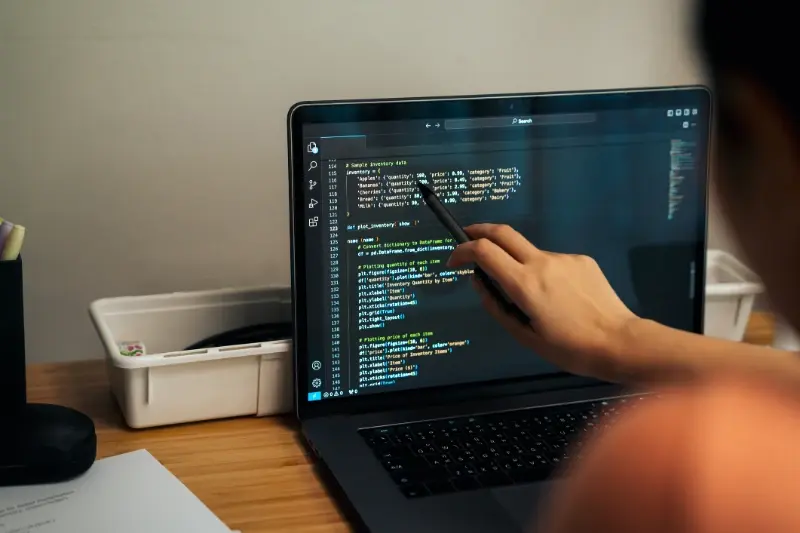Why Code Reviews Are Your App’s Best Friend (And Your Wallet’s Too)
Picture this: a single line of bad code in a mobile app can cost companies thousands of pounds to fix once it's live. That's not just developer drama—that's cold, hard financial reality. The difference between catching that problematic code during development versus after your app hits the store can be the difference between a £50 fix and a £5,000 nightmare. Code reviews are the safety net that most app projects skip, thinking they're saving time and money. Spoiler alert: they're not.
When we talk about mobile app development, everyone gets excited about the flashy features and slick designs. Fair enough—those are the bits users see and love. But underneath all that polish sits thousands of lines of code that need to work perfectly together. Without proper code reviews, you're basically building your app on shaky foundations and hoping for the best.
A study by IBM found that fixing a defect in production costs 4-5 times more than fixing it during development, and 100 times more than fixing it during the design phase
The thing is, code reviews aren't just about finding bugs—though they're brilliant at that too. They're about building quality into your mobile app from day one, creating a culture where your development team actually talks to each other, and yes, saving you serious cash in the long run. This quality investment pays dividends when your app scales and your user base grows.
What Are Code Reviews Anyway
Right, let's start with the basics because I know not everyone reading this will be a developer. A code review is quite simple really—it's when another developer looks over the code that someone else has written before it goes into the main app. Think of it as a second pair of eyes checking your work.
Here's what happens during a typical code review process:
- A developer writes some new code or fixes a bug
- They submit it for review (usually through tools like GitHub or GitLab)
- Another team member examines the code line by line
- They check for bugs, security issues, and whether it follows best practices
- They either approve it or suggest changes
- Once approved, the code gets merged into the main app
Now, I'll be honest with you—when I started out years ago, code reviews felt like a pain. Nobody likes having their work scrutinised, right? But I've learned that they're one of the most valuable practices in mobile app development. They catch mistakes that the original developer missed, ensure the code is readable for future updates, and help spread knowledge across the team. The reviewer might spot a more efficient way to solve a problem or notice a potential crash that could affect thousands of users.
The Money Problem Most Apps Face
Let me tell you something that might surprise you—most mobile apps fail not because they're bad ideas, but because they become too expensive to maintain. I've watched countless brilliant app concepts crash and burn simply because the development costs spiralled out of control after launch.
The pattern is always the same. A team builds their app, launches it, and then reality hits. Users start reporting bugs. New operating system updates break things. Features that seemed perfect in testing suddenly cause crashes in the real world. Before you know it, you're spending more money fixing problems than you ever spent building the app in the first place.
The Hidden Costs That Kill Apps
Here's what most people don't realise about mobile app development—the real cost isn't in the initial build. It's in everything that comes after:
- Emergency bug fixes that need immediate attention
- Rushed patches that often create new problems
- Lost users who delete your app after a bad experience
- App store review damage that takes months to repair
- Developer time spent hunting through messy code
This is where quality investment during development becomes your lifeline. When you invest in proper code reviews from the start, you're not just buying better code—you're buying peace of mind and long-term cost savings that can make or break your app's success.
Track your post-launch bug fix costs for three months. You'll quickly see why prevention beats cure every single time.
How Code Reviews Catch Problems Early
Picture this: your developer writes some code that works perfectly on their machine, but crashes spectacularly when users try to upload photos on older Android devices. Without code reviews, this bug might slip through testing and land in your live app—cue angry users and frantic midnight fixes. But with proper code reviews, another developer would spot this issue before it ever reaches your users.
Code reviews work like having a second pair of eyes look over everything before it goes live. When developers review each other's work, they catch bugs that the original programmer missed, spot potential security holes, and identify code that might cause problems down the line. It's not about finding fault—it's about making sure everything works as intended.
The Types of Problems Reviews Catch
Logic errors are probably the most common catches during reviews. These happen when code doesn't behave the way it should—like a login system that accepts any password or a shopping cart that doubles prices. Security vulnerabilities get spotted too; things like unencrypted data storage or weak authentication that could put user information at risk.
Performance issues often surface during reviews as well. Code that works fine with ten users might crawl to a halt with ten thousand, and experienced reviewers can spot these bottlenecks before they become expensive problems to fix later.
Why Quality Code Saves Cash Later
Here's something I've learned after years in mobile app development—writing good code from the start is like buying a quality car instead of a cheap one that breaks down every month. You might spend a bit more upfront, but you'll save thousands in the long run. Quality code doesn't just happen by accident; it comes from careful planning, proper testing, and yes, those code reviews we keep banging on about.
When developers rush through projects without proper review processes, they create what we call "technical debt"—basically, shortcuts that need fixing later. And fixing problems in a live mobile app? That's where the real money disappears. You're looking at emergency developer hours, potential downtime, angry users leaving bad reviews, and sometimes even having to rebuild entire sections of your app.
Clean code is not written by following a set of rules. You don't become a software craftsman by learning a list of heuristics. Professionalism and craftsmanship come from values that drive disciplines.
Quality investment in your mobile app's codebase pays dividends for years. Apps with well-reviewed, clean code are easier to update, simpler to add new features to, and far less likely to crash on users' phones. The cost savings compound over time—you spend less on maintenance, fewer emergency fixes, and your development team can work faster on new features instead of constantly firefighting old problems.
The Team Benefits Nobody Talks About
I've worked with development teams of all sizes—from solo developers to massive corporate squads—and there's one thing that always surprises clients about code reviews. They think it's just about finding bugs, but honestly, that's just the tip of the iceberg. The real magic happens with what it does for your team.
Code reviews turn your developers into better programmers. When someone knows their code will be reviewed by colleagues, they naturally write cleaner, more thoughtful code. It's like having a gentle accountability system that pushes everyone to raise their game without being pushy about it.
Knowledge Sharing That Actually Works
Here's what I see happen time and time again: junior developers learn faster, senior developers share their expertise naturally, and the whole team starts writing code in a more consistent style. Nobody's left scratching their head wondering how a particular feature works because they've all seen it during review.
The team benefits break down like this:
- Faster onboarding for new team members
- Reduced dependency on individual developers
- Better communication between team members
- Shared ownership of code quality
- Natural mentoring opportunities
When your team works this way, you get a mobile app that multiple people understand deeply—not just the person who originally wrote each bit of code.
Making Code Reviews Work For Your Mobile App
Right, so you're convinced that code reviews are worth doing—but how do you actually make them work without slowing everything down? I've seen teams try to implement code reviews and end up creating bottlenecks that make developers want to throw their laptops out the window. The trick is finding the sweet spot between thorough checking and keeping momentum.
Start small and build habits gradually. Don't try to review every single line of code from day one; you'll burn out your team faster than you can say "mobile app development." Pick the most critical parts first—security features, payment processing, user authentication. These are the areas where bugs cost the most money later.
Setting Up Your Review Process
The tools matter, but the process matters more. Here's what works:
- Keep reviews under 400 lines of code at a time
- Set a maximum review time of 60 minutes
- Use checklists for common issues
- Rotate reviewers to spread knowledge
- Focus on functionality, not personal coding style
Make code reviews a learning opportunity, not a blame game. When someone finds a bug, celebrate it—you've just saved money and prevented user frustration.
The key is consistency rather than perfection. A regular review process that catches 80% of issues is infinitely better than a perfect process that nobody uses because it's too complicated.
Conclusion
Code reviews aren't just another box to tick in your development process—they're genuinely one of the smartest investments you can make for your mobile app. I've seen too many projects crash and burn because teams skipped this step, thinking they could save time and money. Spoiler alert: they always end up spending more fixing problems later.
The maths is pretty straightforward when you think about it. Catching a bug during code review might cost you an hour of developer time; finding that same bug in production could cost you weeks of work, frustrated users, and damaged reputation. Not to mention the sleepless nights! Your team will thank you for implementing proper code reviews too—there's nothing quite like the confidence that comes from knowing your code has been properly checked before it goes live.
Starting small is perfectly fine. You don't need to implement a complex review process overnight. Pick one or two key areas of your app and begin there. Build the habit, get your team comfortable with the process, then expand. The investment in time and effort you make now will pay dividends throughout your app's lifetime—and your wallet will definitely notice the difference.
Share this
Subscribe To Our Blog
You May Also Like
These Related Stories

6 Ways Good Code Review Practices Protect Your App Investment

The Real Cost Of Skipping Code Reviews In App Development





